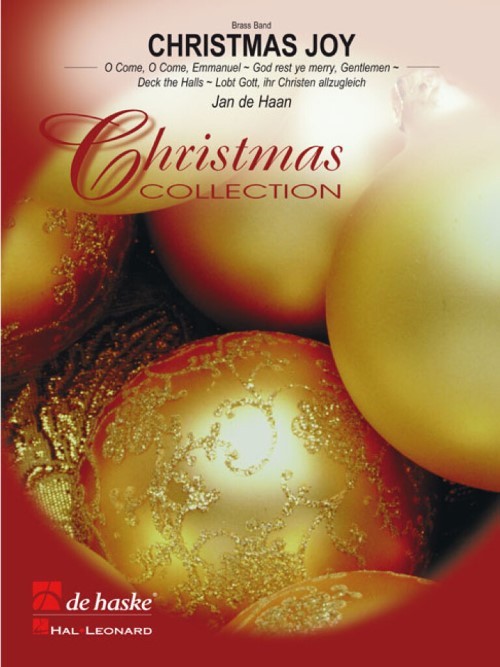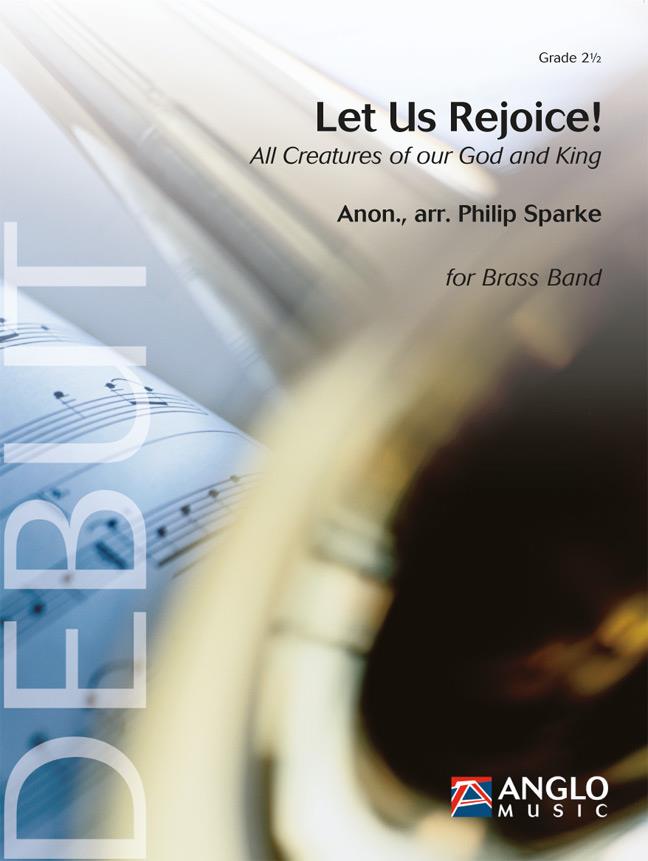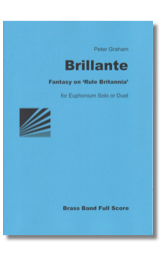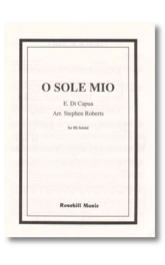Results
-
 £60.99
£60.99Christmas Joy (Brass Band - Score and Parts) - De Haan, Jan
In this festive medley Jan de Haan brings together a selection of the most famous Christmas songs from around the world. It features: O Come, O Come Emmanuel, God Rest Ye Merry, Gentlemen, Deck the Halls, and Praise God, Ye Christians Everywhere. Jan de Haan has created a work that will bring all the joy and happiness of the season to your Christmas concert.Duration: 4:00
Estimated dispatch 7-14 working days
-
 £59.99
£59.99Let Us Rejoice! (All Creatures of our God and King) (Brass Band - Score and Parts) - Sparke, Philip
This arrangement presents three contrasting verses of the ancient hymn tune Let Us Rejoice!, which in the English-speaking world is usually sung to the hymn All creatures of our God and King. It is effective as a concert piece as well as an instrumental interlude during a church service, particularly at Easter or Whitsun.Duration: 3:00
Estimated dispatch 7-14 working days
-
 £29.95
£29.95Christmas Joy (Brass Band - Score and Parts) - Leidzen, Erik
A 'classic' Christmas march, played by bands the world over. If your band doesn't play it, you should be asking why not! A cleverly worked 'romp' through the Christmas tunes 'Hark the glad sound', 'Jingle Bells' and 'Wassail song'. Very accessible and great fun to play in a group of any size.
Estimated dispatch 7-14 working days
-
 £14.95
£14.95Christmas Joy (Brass Band - Score only) - Leidzen, Erik
A 'classic' Christmas march, played by bands the world over. If your band doesn't play it, you should be asking why not! A cleverly worked 'romp' through the Christmas tunes 'Hark the glad sound', 'Jingle Bells' and 'Wassail song'. Very accessible and great fun to play in a group of any size.
Estimated dispatch 7-14 working days
-
 £54.99
£54.99American Pie (Brass Band - Score and Parts) - McLean, Don - Sebregts, Ron
Don McLean's success is largely due to the remarkable song American Pie released in 1971. In 2000 American Pie topped the charts again, this time recorded by Madonna when her version achieved number 1 status almost everywhere in the world.Duration: 2:30
Estimated dispatch 7-14 working days
-
 £54.99
£54.99Pre-Pop (Brass Band - Score and Parts)
Pre-Pop is has is a five-movement work composed for beginner bands and can be played with a minimum of four players (+ percussion). It is of course also suitable for a full beginner band. The five contrasting movements are titled: March of the Planets, Lonely Stranger, Pagode, Lost in the World and Hot Pepper Boogie. Your players are certain to enjoy playing this work of great contrasts.
Estimated dispatch 7-14 working days
-
 £49.95
£49.95Brillante - Peter Graham
Brillante was commissioned by Peter Wilson for the British Bandsman Centenary Concert in 1987 and was first performed as a duet by Robert and Nicholas Childs. Later reworked as a solo with brass band accompaniment, it has become popular the world over - an accessible mix of sentiment and virtuosity! This new edition (2018) includes the original duet parts, the solo version, and incorporates a few small changes in phrasing to align with the concert band version also published by Winwood Music.
Estimated dispatch 7-9 working days
-
 £37.95
£37.95O Sole Mio - E. Di Capua
One of the most famous melodies the world has known! This arrangement can be played by any B-flat soloist so it makes a great addition to the repertory.
Estimated dispatch 7-9 working days
-
£26.50
O Come All Ye Faithful - Traditional - Broadbent, D
O Come, All Ye Faithful is a beloved Christmas carol that invites listeners to join in joyful celebration of the birth of Jesus. The carol's triumphant melody conveys a spirit of joy making it a centerpiece of services and Christmas gatherings around the world.
In Stock: Estimated dispatch 1-3 working days
-
 £54.99
£54.99Vivo Per Lei - V. Zelli - Wim Stalman
A passionate desire for Andrea Bocelli's voice has spread across the world like wildfire for Andrea Bocelli possesses a truly remarkable voice. A voice as palpably powerful, as it is almost ethereal. Vivo Per Lei (I live for Her) tells of a passion so great that it is felt in every action, every moment of the day. This excellent arrangement will bring a moment of tender passion to any concert.
Estimated dispatch 5-14 working days
